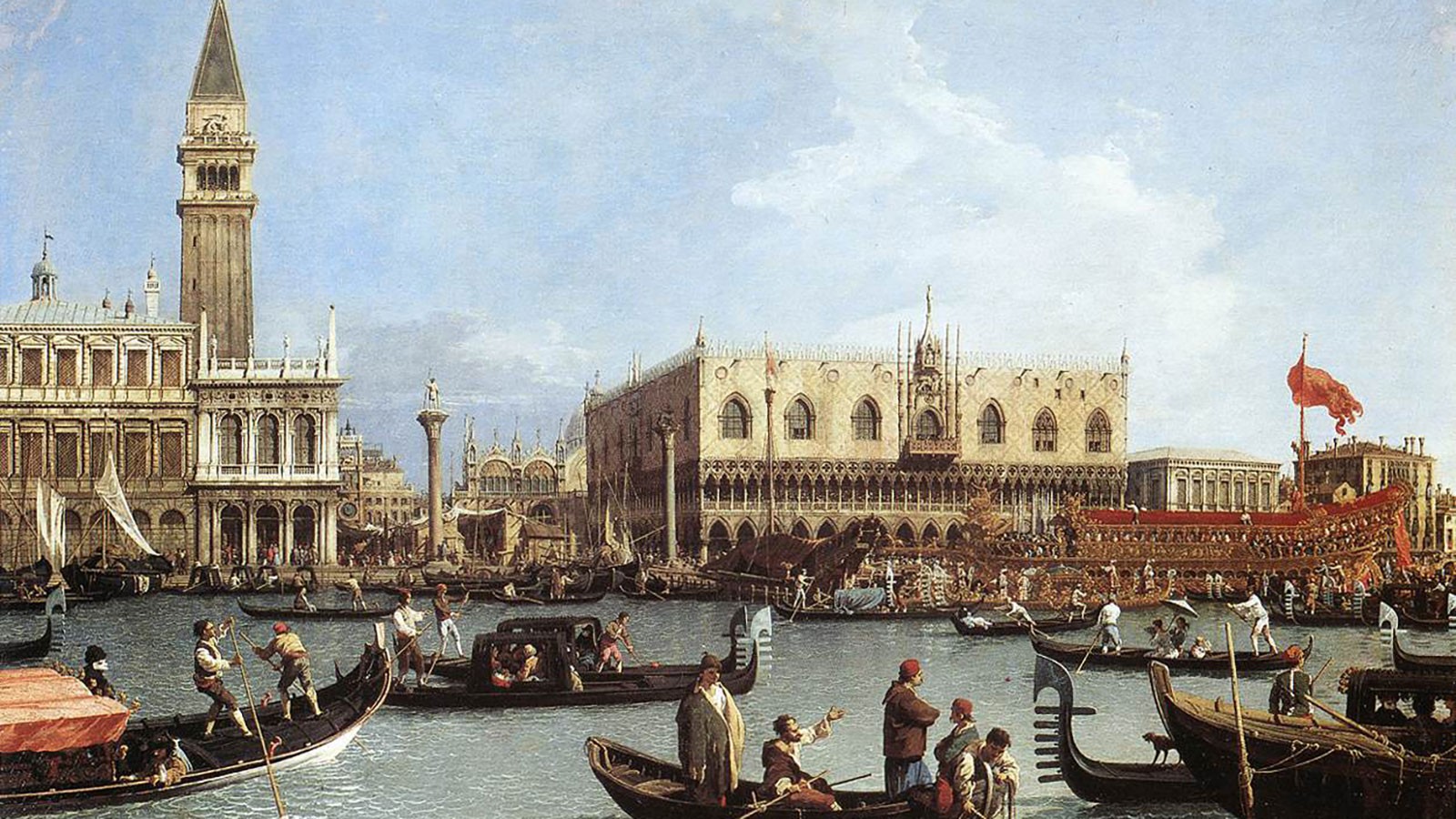Pandemic Reboot: Finding an Anthropological Precedent for 'These Unprecedented Times'
By Lael Gilbert |
Human history is peppered with anthropological records of strategies humans used for overcoming big obstacles. Even words reflect archeological adaptations to historical pandemics — "quarantine" originated from the 14th-century practice of holding ships at anchor outside Venetian harbors for 40 (quaranta) days to manage pandemics. Painting by Giovanni Antonio Canal.
Turns out that events akin to “these unprecedented times” actually have happened before. Human history is peppered with anthropological records of big events that created social upheaval — pandemics, drought, civil unrest — and also with human strategies for overcoming them, according to a new publication from Stefani Crabtree.
Outside threats have long created cultural instability and spurred human adaptations, she said.
“One thing humans are particularly good at is perceiving environmental cues, adapting cultural practices around those cues, and encoding lessons for future generations on how to prevail,” said Crabtree, assistant professor in Environment and Society in the Quinney College of Natural Resources. “There is a lot that history can teach us about resilience in these circumstances.”
An example comes from the Chaco people of the area now known as the U.S. Southwest, she said. Droughts and civil unrest led Chacoan societies to develop social innovations to help them thrive for 700 years through times of both prosperity and upheaval. The archeological record, bolstered by computer simulation, shows how when maize productivity failed, the Chacoan people adapted. When they finally left the Mesa Verde area, they brought with them the accumulated knowledge of a successful society.
Even the terminology we use in the current COVID pandemic reflects these kinds of adaptations. The word “quarantine” originated from the 14th-century practice of holding ships at anchor outside Venetian harbors to protect citizens from unknown pathogens that may be lurking with visiting sailors. The word comes from quaranta giorni, the 40 days sailors had to wait before disembarking.
“This shared history and solidarity with the past suggests that we can learn from these difficult situations,” Crabtree said.
Societies that prevailed encoded lessons through oral tradition, writing, songs and artworks, leaving behind lessons that we can use to adapt and innovate, she added.
Crabtree’s contribution is part of a series of essays from the Santa Fe Institute that puts the COVID pandemic into a broader science perspective, which includes anthropology, epidemiology, statistics and more. The series also includes authors such as McArthur Genius Fellow Simon Levin, mathematician Jurgen Jost and theoretical physicist Geoffrey West.
WRITER
Lael Gilbert
Public Relations Specialist
Quinney College of Natural Resources
435-797-8455
lael.gilbert@usu.edu
CONTACT
Stefani Crabtree
Assistant Professor of Social-Environmental Modeling
Department of Environment & Society
435-797-0813
Stefani.crabtree@usu.edu
Comments and questions regarding this article may be directed to the contact person listed on this page.







